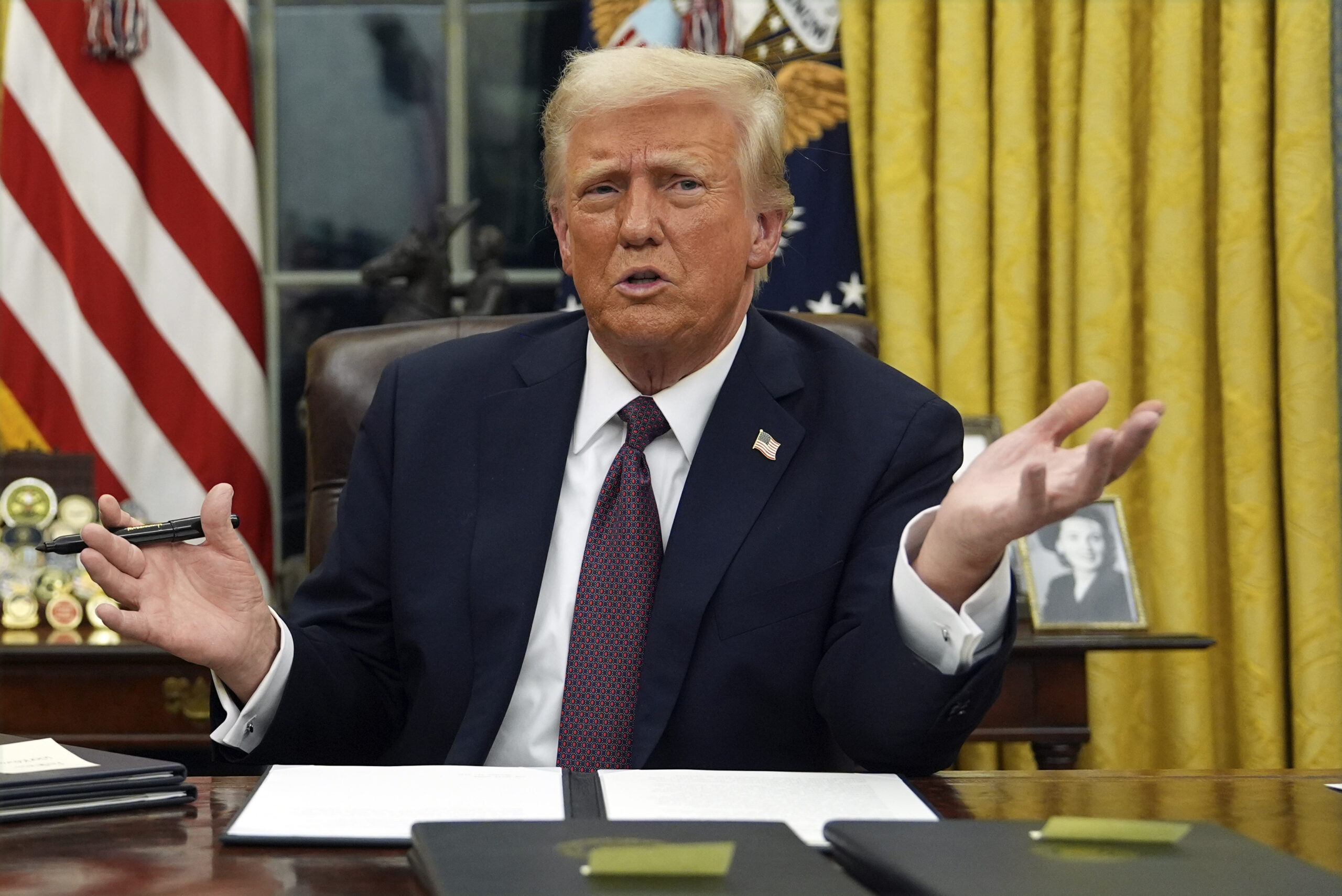The U.S. Department of Justice (DOJ) argued Monday that a federal court order blocking President Donald Trump’s federal funding freeze doesn’t halt the administration’s efforts.
Last Monday, the White House Office of Management and Budget (OMB) issued a memo instructing all federal agencies to pause their grants and loans.
That memo was immediately met with a flurry of lawsuits seeking to block the freeze. One of them was filed by 22 Democratic states and Washington, D.C. in a federal district court in Rhode Island. The judge blocked the directive until he could hear the case.
Hours before the hearing to consider the plaintiffs’ lawsuit, the OMB rescinded the memo. Then, White House Press Secretary Karoline Leavitt caused mass confusion when she posted on X, saying “This is NOT a rescission of the federal funding freeze…It is simply a rescission of the OMB memo.”
The federal court held a hearing Wednesday and granted the plaintiffs’ request for a temporary restraining order Friday, which said the Trump administration “shall not pause, freeze, impede, block, cancel, or terminate…federal financial assistance to the States.”
The order also stated if the White House engages in the “indentifi[cation] and review” of federal programs, “as identified in the OMB directive,” they can’t freeze federal funds in the process. It also prohibited the administration from implementing the directive under another name or format, like in Leavitt’s social media post.
Trump’s DOJ responded Monday to the order saying that since the Democratic states “only challenged the OMB memorandum,” the administration doesn’t “read the Order to prevent the President or his advisors from communicating with federal agencies or the public about the President’s priorities regarding federal spending.”
The plaintiffs’ lawsuit challenged the “OMB directive,” but their arguments addressed the action of a president freezing federal funds already allocated by Congress, alleging it violated the separation of powers outlined in the U.S. Constitution and the Administrative Procedure Act.
The Justice Department also claimed the order “contains several ambiguous terms and provisions that could be read to constitute significant intrusions on the Executive Branch’s lawful authorities and the separation of powers.”
The DOJ asked the court to “notify Defendants if they have misunderstood the intended scope of the Court’s Order,” and said federal agencies that aren’t defendants in the case don’t have to comply with the court’s halting of the federal funding freeze.


